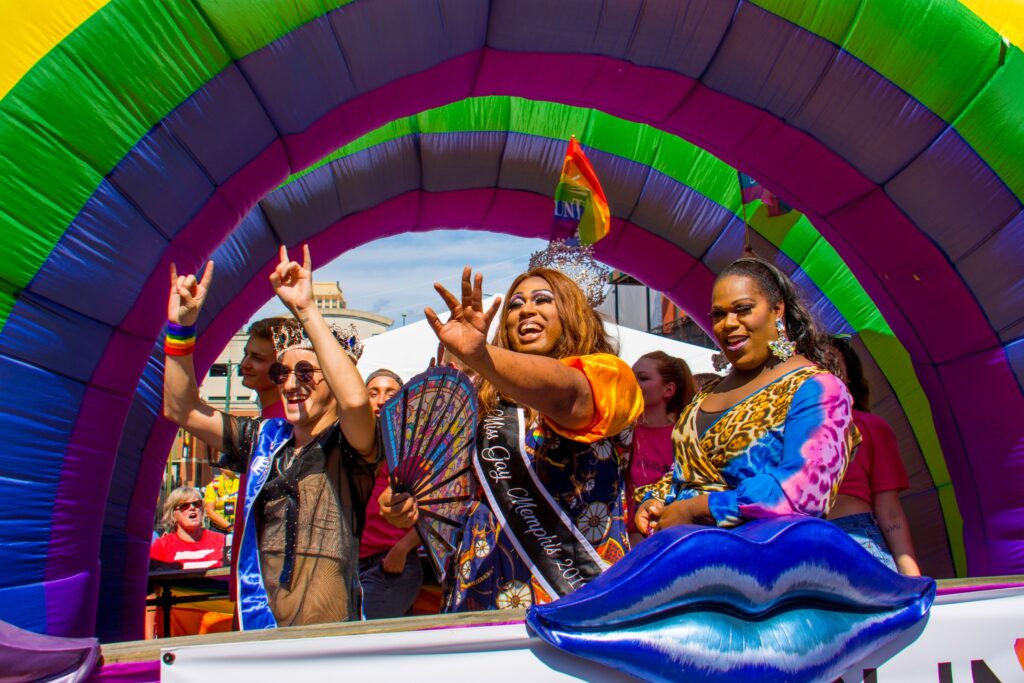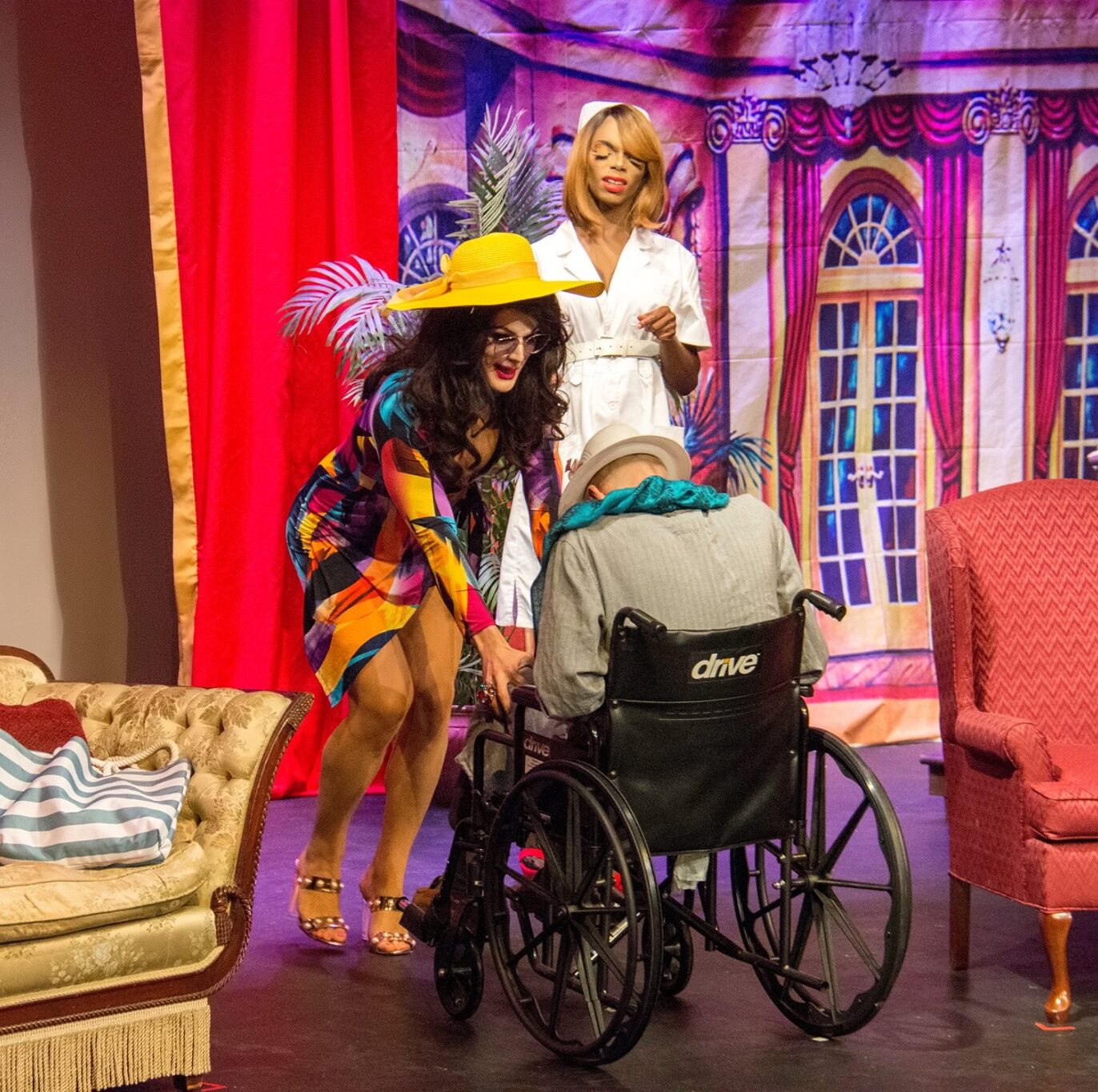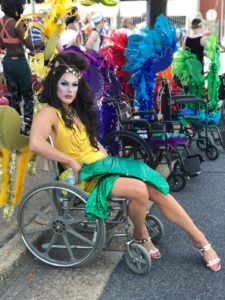
On a dark stage, Memphis drag queen Phyllis Feathers sits, preparing to tell the audience an unusual fairy tale.
“Once upon a time in the land of Tennessee, an evil spell was cast called Senate Bill No. 3,” she says, and the crowd laughs with her.
Senate Bill 3 has been called a drag ban, but drag isn’t mentioned anywhere in the law itself. As written, it prohibits “adult cabaret” and refers to drag performers as “male or female impersonators.” The restrictions were set to go into effect April 1.
That was going to make Phyllis Feathers’ performance difficult. She’s a member of Friends of George’s, an LGBTQ theater company and the plaintiffs in the case against the state’s anti-drag law. A judge temporarily blocked the restrictions from taking effect at the start of April, or she wouldn’t have been on stage a few weeks later.
“All of a sudden, drag is considered adult cabaret,” Feathers tells the audience. “But never mind that Shakespeare created this whole darn mess.”
The injunction is set to expire in early June when the judge will give a final ruling in the case. That’s left Pride organizations across Tennessee in uncertain territory.
“I love drag,” says Mac Huffington, the president of Nashville Pride. “I’ve done drag, been a part of the drag world for several years. I own pageants.”
Huffington has been a part of the organization for longer than she wants to say on record, and this is the first Pride where her organization had to start planning without a pillar of the celebration.
“Because the law was written so vaguely, that we just needed to make sure that we were going to be presenting a legal festival.”
 Courtesy Friends of George's
Courtesy Friends of George's The Friends of George’s theater company puts on an original murder mystery.
That vagueness is exactly what makes the law so dangerous, says Melissa Stewart. Her civil rights firm is representing Friends of George’s in challenging the law. She says that when a law leaves enforcement up to individual police officers, it doesn’t matter if the case is thrown out.
“The harm is already done,” Stewart says. “I mean, you put anyone in Shelby County jail in full drag, and I am not going to guarantee that they come out alive.”
Stewart says that law enforcement, historically, doesn’t have a great track record with the LGBTQ community.
“Surveillance and raids and arrest — that is the history of queer rights,” she says. “And this law seeks to set that movement back 60 years.”
The fear is palpable in the state’s queer spaces leading up to Pride. Metal detectors have popped up outside Nashville’s LGBTQ events. Micah Winter, a drag queen with Friends of George’s, says the theater had to increase security before their Drag Rocks event.
“There is a legitimate, new fear, and it’s not about litigation. It’s about physical harm,” he says.
 Courtesy Micah Winter
Courtesy Micah Winter Micah Winter in drag as Goldie Dee Collins
Despite the danger, Winter will still be performing at Memphis Pride this year. It’s one of the only festivals in Tennessee that’s putting drag performers on its main stage this June.
Vanessa Rodley, the president of Memphis Pride, says it’s been hard to recruit drag performers and secure sponsors.
“And without the funds, how can you provide the security or the safe space you need to, right? So it’s become a huge obstacle this year in a struggle where we never struggle.”
But Rodley says it’s worth the struggle.
“I know we’re all afraid, and we’re all scared to be out there. But we need to be present, and we need to be visible,” she says.
Nashville Pride will have non-stop drag performances at its Stonewall Stage during the festival.
“We’re still going to be loud. We’re not going to be silenced,” Huffington says. “We’re not going away. You can make as many laws as you want, but we’re not going away.”

